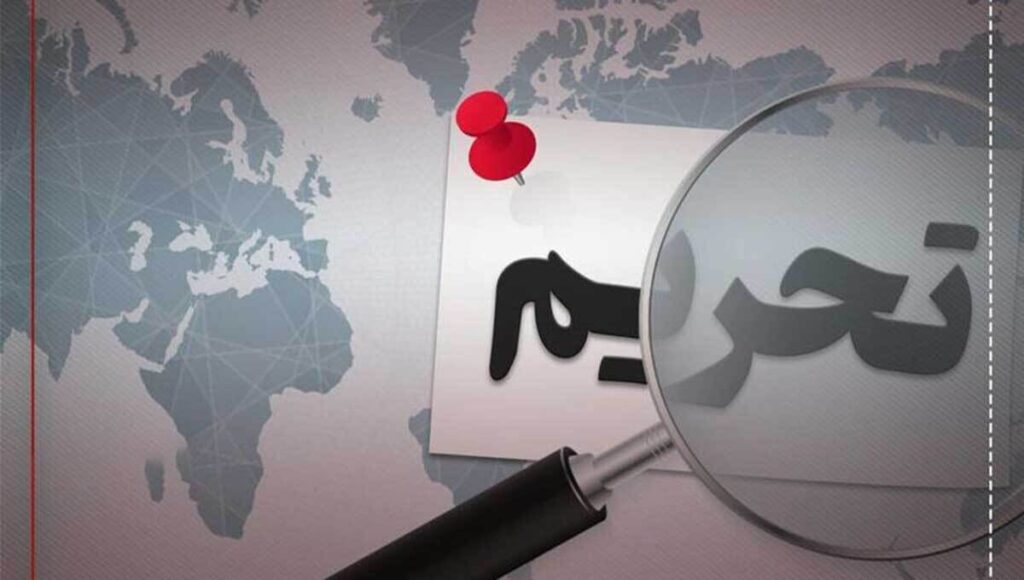The Influence of International Sanctions on World Exchange Rates
International sanctions are among the most important political and economic means that have colossal consequences both for individual countries and world financial markets. One of the spheres suffering most from such actions is the sphere of fluctuations in world currencies’ exchange rates. Also, trade relations, monetary policies, and economic fluctuations resulting from sanctions change considerably, affecting the national currencies of both sanctioned countries and international currency pairs in the forex market. In this article, Toofan Trading Academy looks at the impacts of international sanctions on global exchange rates and how these sanctions influence the forex market.
1. International Sanctions and Their Objectives
Most of the time, international sanctions take place on behalf of a country or an international organization such as the United Nations, the European Union, and the United States. Generally, sanctions are imposed for the violation of human rights, unauthorized nuclear activities, or unreasonable domestic and foreign policies of any country. It essentially aims to dampen the economy of a target nation in order to compel that country to change its political or economic behavior.
Sanctions can be exercised in many ways, including restrictions on trade, finance, and banks. In most cases, financial and economic sanctions bar the given country from access to the international banking system, suspend the export and import of strategic commodities like oil and gas that directly influences currency rates.
2. The Impact of Sanctions on Exchange Rates
Economic sanctions often have a deep impact on the national currency value of the countries imposing such sanctions. Generally, reduced access to international markets and trade restrictions lower exports and imports by a large margin, thereby directly affecting demand for and supply of currency. Reduced earnings of foreign currency and falling international confidence in the economy could lower the value of a country’s national currency.
Sanctions against Iran in recent years, for instance, have devalued the Iranian Rial drastically against major currencies like the U.S. dollar and the Euro. The same treatment also inflated the rate of inflation and reduced the national currency purchasing power. A country under sanctions will always suffer from heavy currency fluctuations hence providing instability in the national and international financial markets.
Read More: How Global Economics Affects the Forex Market
3. Impact of Sanctions on International Exchange Rates
Sanctions do not only have direct impacts on the national currency of sanctioned countries but may also affect international exchange rates. For instance, imposing sanctions on major oil and gas producers leads to fluctuations in worldwide energy markets. Such changes in global oil and gas prices affect, in turn, such currencies as the U.S. dollar, Russian Ruble, or Saudi Riyal.

Besides, sanctions imposed by other countries bring about changes in the pattern of trade and economic transactions between nations. For example, when heavy economic sanctions are imposed on a particular nation, trading partners may have to seek new sources of supply. This could alter the supply-and-demand forces that influence international exchange rates. For example, during the peak of the Ukraine crisis, where the U.S. imposed heavier sanctions against Russia, many countries in Europe had to look elsewhere for supplies of energy, creating immense volatility in the values of European and Russian currencies.
4. Indirect Effects of Sanctions on Global Currencies
Sanctions also tend to have an indirect impact on the currencies of other countries. For any country under sanctions in which trade with the rest of the world has been limited, this is mostly as a result of low demand for its trading partners’ currency that may subsequently bring about devaluation of the currency.
For instance, sanctions against Iran affected other regional countries indirectly and even some European currencies. The neighboring countries with traditional trade with Iran faced declining commercial and monetary demand, which, in some cases, caused currency devaluation.
5. Forex Market and the Impact of Sanctions
The forex is among the most voluminous and dynamic financial markets in the world, very sensitive to political and economic changes. Under conditions of international sanctions-one of the active participants in shaping the exchange rate of currencies-forex might face extreme fluctuations. In response to the economic sanction imposition, forex traders keep a close eye on any alteration in the exchange rate of the currency in that country and take positions based on their expectations about the outcomes of the sanctions.
For instance, when Russia was subjected to hard sanctions in 2022, the Russian Ruble strongly depreciated. Therefore, Forex traders speculating on such depreciation sought to profit from these wild oscillations. The changes increase turbulence within the forex market and have a direct effect on the currency pairs that include the sanctioned currency.
Learn More: Risk Management in Forex Trading: Principles and Techniques
6. How to Cope with Sanctions in the Forex Market
With international sanctions affecting them, forex traders need to be prepared with strategies that can help overcome volatility. One of the most common ways to do so is hedging. Traders will be mitigating risks of extreme currency fluctuation by taking opposite sides in the forex market.
Fundamental analysis, therefore, enables traders to better understand how the new sanctions may impact foreign exchange rates. The economic and political analysis places traders in a good position to understand how these sanctions may impact currency rates.
Conclusion
The effects of international sanctions on world exchange rates are truly broad and complex. The sanctions not only greatly affect the value of a national currency within the country under the sanctions imposition but may also create considerable volatility within the forex market and other major international currencies. To forex traders, the careful analysis of sanctions and proper strategy for coping with fluctuation will help attain desired success within these volatile markets.
